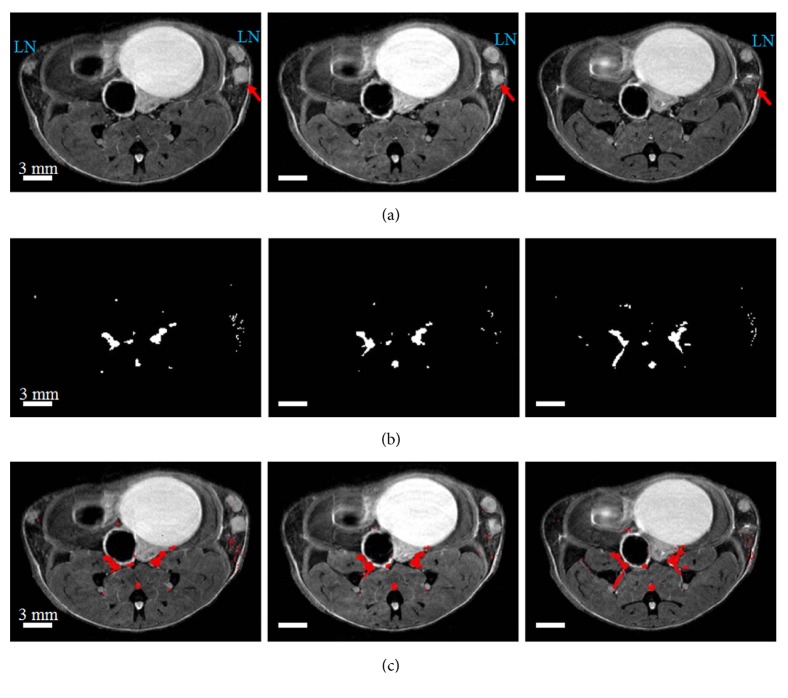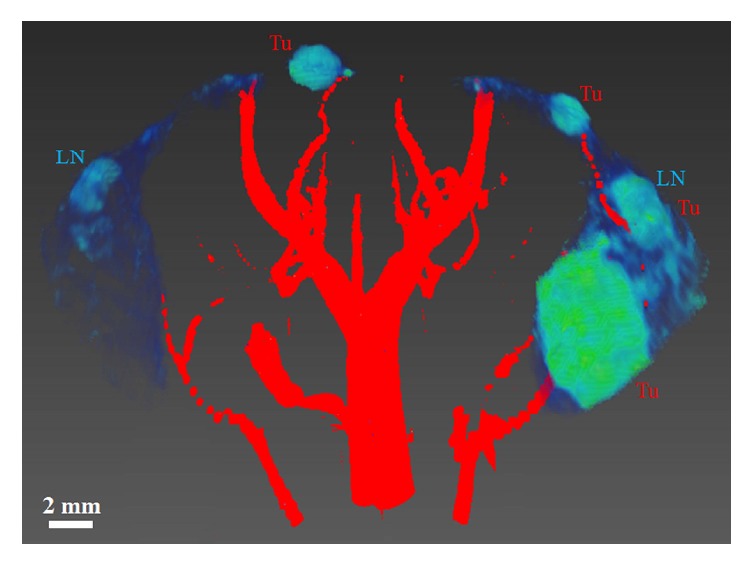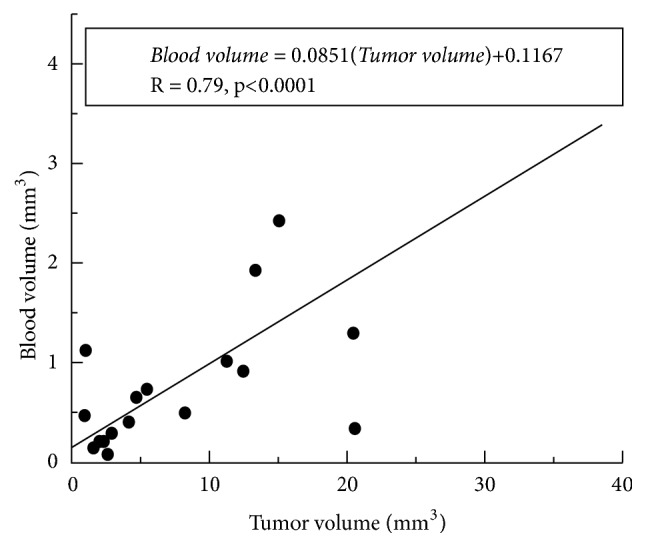Magnetic Resonance Angiography Shows Increased Arterial Blood Supply Associated with Murine Mammary Cancer.
IF 3.3
Q2 ENGINEERING, BIOMEDICAL
引用次数: 4
Abstract
Breast cancer is a major cause of morbidity and mortality in Western women. Tumor neoangiogenesis, the formation of new blood vessels from pre-existing ones, may be used as a prognostic marker for cancer progression. Clinical practice uses dynamic contrast enhanced magnetic resonance imaging (DCE-MRI) to detect cancers based on increased blood flow and capillary permeability. However, DCE-MRI requires repeated injections of contrast media. Therefore we explored the use of noninvasive time-of-flight (TOF) MR angiography for serial studies of mouse mammary glands to measure the number and size of arteries feeding mammary glands with and without cancer. Virgin female C3(1) SV40 TAg mice (n=9), aged 18-20 weeks, were imaged on a 9.4 Tesla small animal scanner. Multislice T2-weighted (T2W) images and TOF-MRI angiograms were acquired over inguinal mouse mammary glands. The data were analyzed to determine tumor burden in each mammary gland and the volume of arteries feeding each mammary gland. After in vivo MRI, inguinal mammary glands were excised and fixed in formalin for histology. TOF angiography detected arteries with a diameter as small as 0.1 mm feeding the mammary glands. A significant correlation (r=0.79; p< 0.0001) was found between tumor volume and the arterial blood volume measured in mammary glands. Mammary arterial blood volumes ranging from 0.08 mm3 to 3.81 mm3 were measured. Tumors and blood vessels found on in vivo T2W and TOF images, respectively, were confirmed with ex vivo histological images. These results demonstrate increased recruitment of arteries to mammary glands with cancer, likely associated with neoangiogenesis. Neoangiogenesis may be detected by TOF angiography without injection of contrast agents. This would be very useful in mouse models where repeat placement of I.V. lines is challenging. In addition, analogous methods could be tested in humans to evaluate the vasculature of suspicious lesions without using contrast agents.



磁共振血管造影显示动脉供血增加与小鼠乳腺癌有关。
乳腺癌是西方妇女发病和死亡的主要原因。肿瘤新生血管生成,即由原有血管形成的新血管,可作为癌症进展的预后标志。临床实践使用动态对比增强磁共振成像(DCE-MRI)来检测基于血流量和毛细血管通透性增加的癌症。然而,DCE-MRI需要反复注射造影剂。因此,我们探索了使用无创飞行时间(TOF)磁共振血管造影对小鼠乳腺进行系列研究,以测量喂养患有和未患癌症的乳腺的动脉的数量和大小。雌性C3(1) SV40 TAg小鼠(n=9),年龄18-20周龄,在9.4特斯拉小动物扫描仪上成像。获得小鼠腹股沟乳腺的T2W和TOF-MRI血管造影。对数据进行分析,以确定每个乳腺的肿瘤负荷和每个乳腺供血动脉的体积。在体内MRI后,切除腹股沟乳腺,在福尔马林中固定组织学。TOF血管造影检测到直径小至0.1 mm的动脉喂养乳腺。相关性显著(r=0.79;乳腺动脉血容量与肿瘤体积的差异有P < 0.0001)。测量乳腺动脉血容量范围为0.08 ~ 3.81 mm3。在体内T2W和TOF图像上发现的肿瘤和血管分别用离体组织学图像证实。这些结果表明,患癌乳腺的动脉募集增加,可能与新生血管生成有关。在不注射造影剂的情况下,可以通过TOF血管造影检测新血管生成。这将在小鼠模型中非常有用,因为重复放置静脉注射线是具有挑战性的。此外,类似的方法可以在人类中进行测试,以评估可疑病变的血管系统,而无需使用造影剂。
本文章由计算机程序翻译,如有差异,请以英文原文为准。
求助全文
约1分钟内获得全文
求助全文
来源期刊

International Journal of Biomedical Imaging
ENGINEERING, BIOMEDICAL-
CiteScore
12.00
自引率
0.00%
发文量
11
审稿时长
20 weeks
期刊介绍:
The International Journal of Biomedical Imaging is managed by a board of editors comprising internationally renowned active researchers. The journal is freely accessible online and also offered for purchase in print format. It employs a web-based review system to ensure swift turnaround times while maintaining high standards. In addition to regular issues, special issues are organized by guest editors. The subject areas covered include (but are not limited to):
Digital radiography and tomosynthesis
X-ray computed tomography (CT)
Magnetic resonance imaging (MRI)
Single photon emission computed tomography (SPECT)
Positron emission tomography (PET)
Ultrasound imaging
Diffuse optical tomography, coherence, fluorescence, bioluminescence tomography, impedance tomography
Neutron imaging for biomedical applications
Magnetic and optical spectroscopy, and optical biopsy
Optical, electron, scanning tunneling/atomic force microscopy
Small animal imaging
Functional, cellular, and molecular imaging
Imaging assays for screening and molecular analysis
Microarray image analysis and bioinformatics
Emerging biomedical imaging techniques
Imaging modality fusion
Biomedical imaging instrumentation
Biomedical image processing, pattern recognition, and analysis
Biomedical image visualization, compression, transmission, and storage
Imaging and modeling related to systems biology and systems biomedicine
Applied mathematics, applied physics, and chemistry related to biomedical imaging
Grid-enabling technology for biomedical imaging and informatics
 求助内容:
求助内容: 应助结果提醒方式:
应助结果提醒方式:


